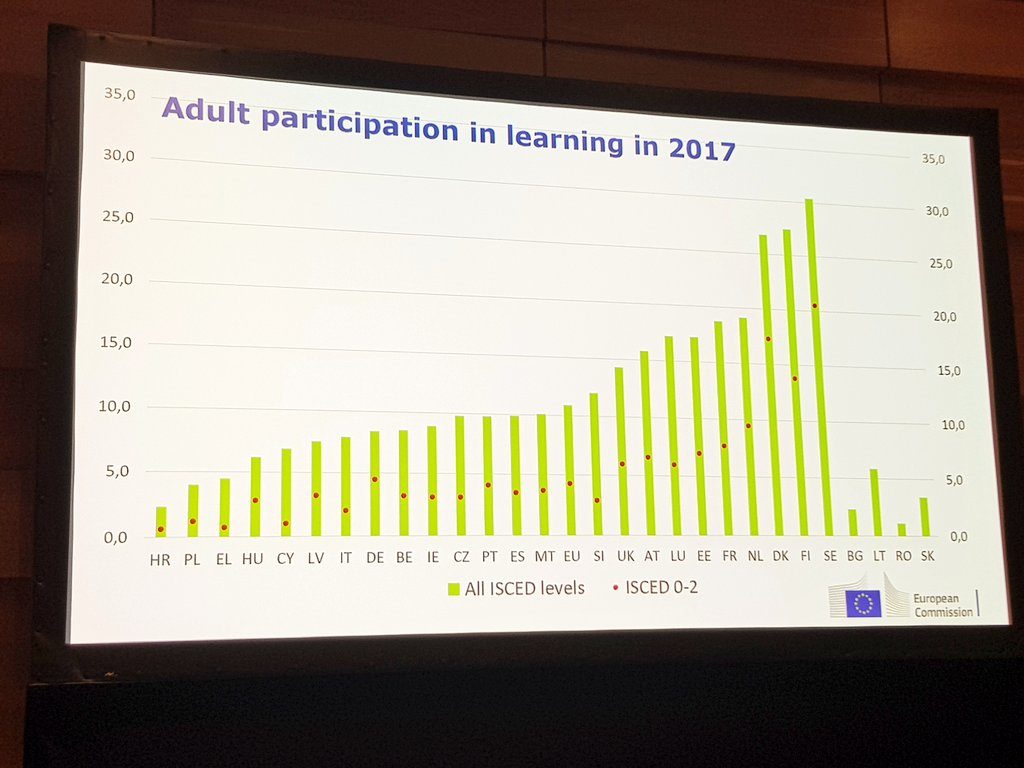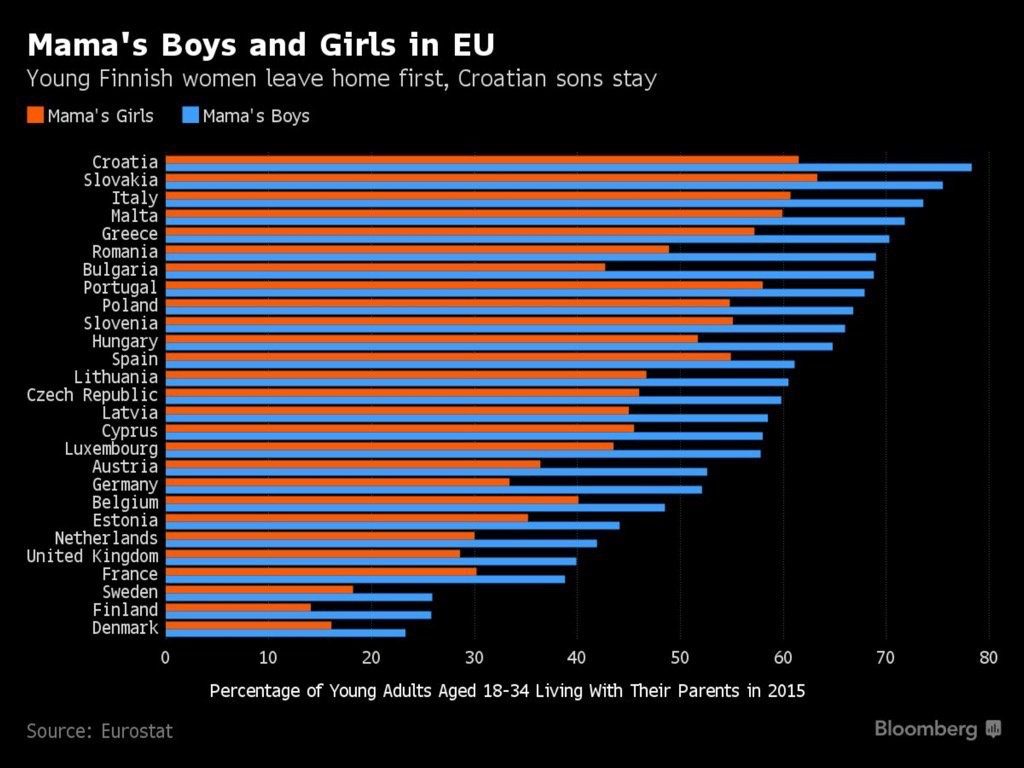 MPs on the UK House of Commons education committee have released a report titled “Value for Money in Higher Education.” They draw attention to figures from the Office for National Statistics (ONS) that indicated 49 percent of recent graduates (within five years of achieving their degree) were in non-graduate roles in 2017.
MPs on the UK House of Commons education committee have released a report titled “Value for Money in Higher Education.” They draw attention to figures from the Office for National Statistics (ONS) that indicated 49 percent of recent graduates (within five years of achieving their degree) were in non-graduate roles in 2017.
This is a significant increase over the proportion at the start of 2009, just after the 2008 financial crash, when 41 percent of recent graduates were in that position. It is matched by a very similar rise even among the population of graduates taken as a whole—including mature students—from 31 percent to 37 percent in the same years.
The report stated: “Higher education institutions must be more transparent about the labour market returns of their courses.” It came with the warning that “too many universities are not providing value for money, and … students are not getting good outcomes from the degrees for which so many of them rack up debt.”
As the title of the report implies, much of the attention on graduate employment is due to the political controversy over the funding of Higher Education in the UK and the cost of participation in degree courses.
But there is another issue which has received less attention: how graduate (and non graduate) jobs are defined.
The Office for National Statistics explains the classification system as follows
1.The skill level groups are created by grouping jobs together based on their occupation according to the Standard Occupation Classification (SOC) 2010 lower level groups. The occupation group is not available for some workers, these have been excluded from the total.
Occupations were grouped by the skill level required according to the following guidelines:
2,1. High – This skill level is normally acquired through a degree or an equivalent period of work experience. Occupations at this level are generally termed ‘professional’ or managerial positions, and are found in corporate enterprises or governments. Examples include senior government officials, financial managers, scientists, engineers, medical doctors, teachers and accountants.
2,2. Upper-middle – This skill level equates to competence acquired through post-compulsory education but not to degree level. Occupations found at this level include a variety of technical and trades occupations, and proprietors of small business. For the latter, significant work experience may be typical. Examples of occupations at this level include catering managers, building inspectors, nurses, police officers (sergeant and below), electricians and plumbers.
2,3. Lower-middle – This skill level covers occupations that require the same competence acquired through compulsory education, but involve a longer period of work-related training and experience. Examples of occupations at this level include machine operation, driving, caring occupations, retailing, and clerical and secretarial occupations.
2,4. Low – This skill level equates to the competence acquired through compulsory education. Job-related competence involves knowledge of relevant health and safety regulations and may be acquired through a short period of training. Examples of occupations at this level include postal workers, hotel porters, cleaners and catering assistants.
The sentence “Occupations at this level are generally termed ‘professional’ or managerial positions, and are found in corporate enterprises or governments.” Arguably this ignores ongoing changes in the economy with high skilled technical jobs being created by Small and Medium Enterprises rather than large corporations. As Malcolm Todd, Provost (Academic) of the University of Derby, points out in an article in WonkHE: “The current government methodology of using traditional Standard Occupational Codes (SOC) to declare which roles are graduate level is dated. It’s not reflective of the current employment market and is not ready for the future job market. Codes are based on traditional views of careers and highly skilled roles, not the whole requirements of a role.”
He draws attention to Teaching Assistants working with pupils that have special education needs and disabilities, and emerging jobs in the growing retail, social care and hospitality, many of which require high skills but are classified as non graduate jobs. At the same time, jobs presently classified as requiring a degree such as accountants are like to decline due to automation and the use of Artificial Intelligence.
To some degree, the debate is clouded by a perception that graduate level jobs should command a higher salary (an argument used by the Government to justify high university tuition fees. Yet wage growth in the UK has been low across all sectors since the onset of the recession in 2008.
But with growing skills required in a range of different jobs, maybe it is time for a new look at how graduate jobs are classified or even whether dividing employment into graduate or non graduate occupations is relevant any more.
 I have often written about the problems in interpreting and making sense of data. I very much like an article ‘What drives anti-migrant attitudes‘ by and published on the Social Europe Site yesterday.
I have often written about the problems in interpreting and making sense of data. I very much like an article ‘What drives anti-migrant attitudes‘ by and published on the Social Europe Site yesterday.
 Fear you are going to be seeing this headline quite a bit in coming months. And like everyone else I am getting excited and worried about the possibilities of AI for learning – and less so for AI in education management.
Fear you are going to be seeing this headline quite a bit in coming months. And like everyone else I am getting excited and worried about the possibilities of AI for learning – and less so for AI in education management.
 I am ever more interested in the issue of data literacy and agree very much with Javiera Atenas from the Open Education Working Group, London
I am ever more interested in the issue of data literacy and agree very much with Javiera Atenas from the Open Education Working Group, London  I’ve had this graphic hanging around for quite a while, so it may be out of date. I think the point of it is that like much data the figures are fascinating but it is quite difficult to interpret. Why do boys leave home earlier than girls? Why is there such a big difference between countries. Although obviously there will be differences between those countries where young people normally leave home to go to university and those where they usually move to another town or city. And I am sure some of it is explained by socio- economic factors. It costs money to leave home. But I am not sure this explains it all. I would be very interested in anyone else’s perspective on this data.
I’ve had this graphic hanging around for quite a while, so it may be out of date. I think the point of it is that like much data the figures are fascinating but it is quite difficult to interpret. Why do boys leave home earlier than girls? Why is there such a big difference between countries. Although obviously there will be differences between those countries where young people normally leave home to go to university and those where they usually move to another town or city. And I am sure some of it is explained by socio- economic factors. It costs money to leave home. But I am not sure this explains it all. I would be very interested in anyone else’s perspective on this data.
